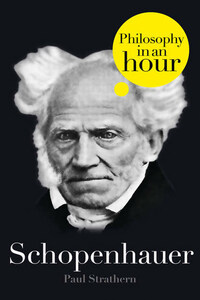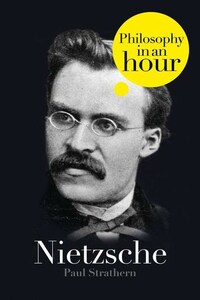Cover
Title Page
Introduction
Schopenhauer’s Life and Works
Afterword
Further Information
From Schopenhauer’s Writings
Chronology of Significant Philosophical Dates
Chronology of Schopenhauer’s Life
Recommended Reading
About the Author
Copyright
About the Publisher
The modern age of philosophy began with Descartes, who doubted everything and reduced our knowledge to one central certainty: ‘Cogito ergo sum’ (I think, therefore I am). Unfortunately he then proceeded to rebuild our knowledge, much as if nothing had happened. After this, the British empiricists Locke, Berkeley, and Hume embarked upon a similarly rigorous destructive process, claiming that our knowledge can only be based on experience. By the time Hume completed this process, human knowledge had been reduced to ruins. According to him, all we in fact experienced was a gibberish of sensations: our conclusions from these had no philosophical validity whatsoever.
This was the absurdity that famously awoke Kant from his ‘dogmatic slumbers’. Taking account of empiricism but refusing to be cowed by it, Kant constructed the greatest of all philosophical systems.
Passing from the sublime to the ridiculous, Hegel then produced his own gross system. His contemporary, Schopenhauer, was to treat this monstrosity with the contempt it deserved. Schopenhauer was to maintain a recognisably Kantian point of view with regard to epistemology (how we know the world). Kant, however, also created a moral system of surpassing beauty and elevation. For Kant, the world had a moral foundation. ‘Es ist gut’ (It is good) were said to be his last words. And in his last great work, which dealt with the purpose of the world, he concluded: ‘Two things fill the mind with ever new and increasing wonder and awe, the oftener and more steadily we reflect upon them: the starry heavens above me and the moral law within me.’ As we shall see, Schopenhauer saw it all very differently.
With Schopenhauer we return to planet earth – with a vengeance. As a man, Schopenhauer was a nasty piece of work, but his writings are immensely endearing. Of the great philosophers he was the finest stylist since Plato. His philosophy too is very appealing. It is the first since Socrates to be imbued with the entire personality of the man who propounds it. From Schopenhauer’s writings you gain a very clear picture of what he was like as a person – with one proviso that is worth remembering at all times when reading him: what appears as witty, insightful, and destructive of humbug on the page may often be sarcastic, egotistical, and aggressive when encountered in real life. Offstage, comedians are seldom renowned for their human qualities – and just because witty philosophers are so rare doesn’t make them an exception to this rule. (Socrates is extremely fortunate that we have no testimony from his wife, Xanthippe.)
But Schopenhauer was original in another, more fundamental way. Not for nothing is he known as the ‘philosopher of pessimism’. With most other major philosophers you can’t escape feeling that the writer is on his best behaviour, and you’re expected to be so too. Everything is all very serious and moral. (Even Hume takes philosophy seriously while doing his demolition job.) Schopenhauer, on the other hand, makes it very plain that he regards the world and our life in it as a bad joke. In this he is undeniably closer to describing the actual state of affairs than those who view the world from an optimistic or purposive standpoint. This pessimism was immensely refreshing in its day, after centuries of Christianity and latter-day rationalism. But Schopenhauer was a pessimist only in so far as he claimed that the world is indifferent to our fate – it doesn’t thwart us on purpose.
This was an attitude that had not received full expression since the Stoics, who advocated a mealymouthed withdrawal from the evils of the horrible world. Schopenhauer advocated the same, but he did so in a distinctly combative and worldly manner. And he was far too egotistical to achieve such self-denial in his own life (though in his view he endured an existence of exemplary asceticism). These paradoxes account for much of Schopenhauer’s popularity. They stem from a contradiction that lay deep in his character and remained unresolved throughout his life.
Arthur Schopenhauer was born on February 22, 1788, in the Baltic city of Danzig (now the Polish city of Gdansk), just across the gulf from where his lifelong hero Immanuel Kant was living in Königsberg. Schopenhauer’s father was a merchant from a patrician family, and his mother was a lively woman with an unfulfilled artistic nature. The family was cosmopolitan in outlook – Arthur was given his name because it was also the same in French and English. When the Prussians, who did not share this zenophile outlook, marched into Danzig in 1793, Schopenhauer’s father immediately removed his home and business to the free port of Hamburg. Here the Schopenhauers eventually took up residence in a fine old house in the Altstadt (Old City).














